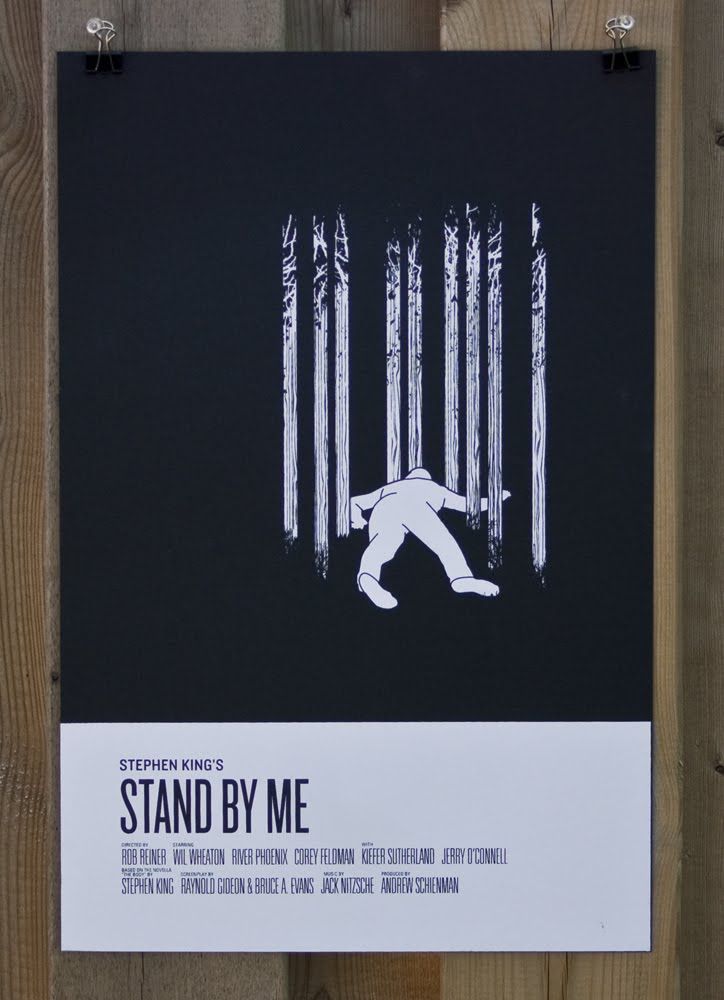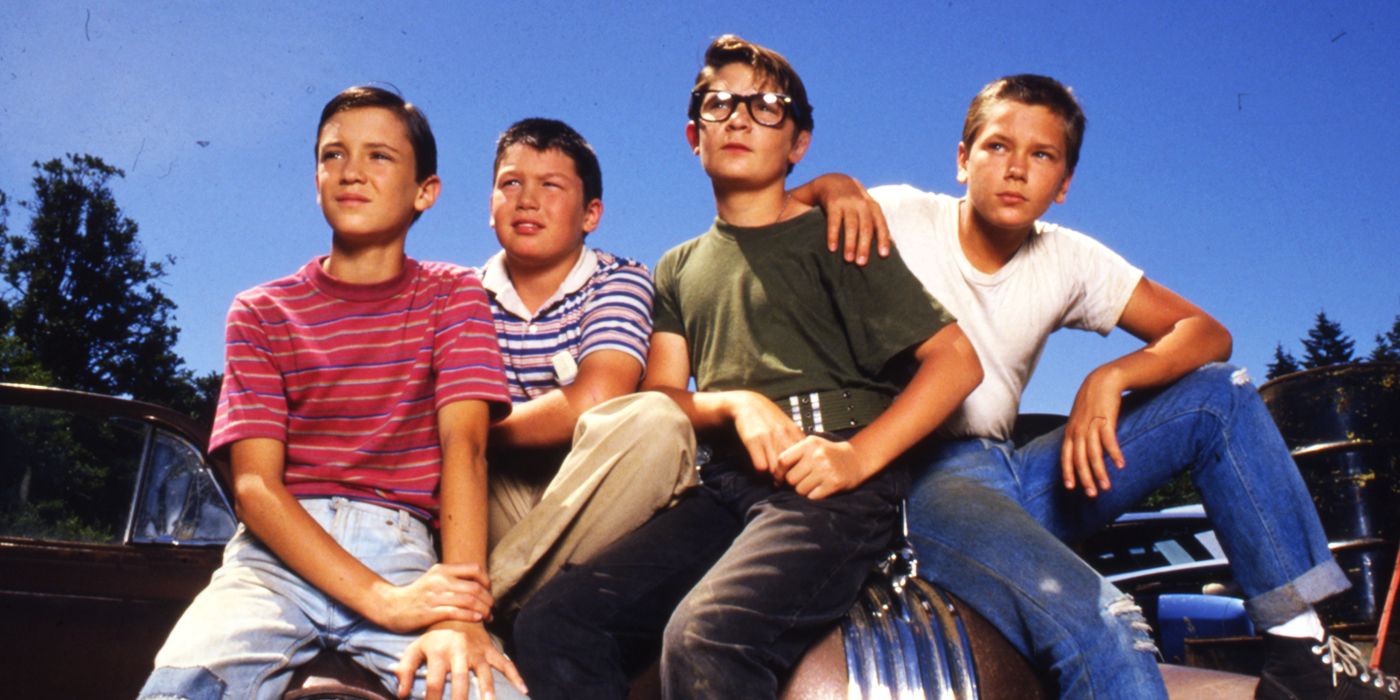The Big Picture
- Stand By Me is the best Stephen King film because it focuses on real kids facing relatable challenges in an authentic and unfiltered way.
- The movie depicts dark topics like neglect, abuse, and betrayal, showing the harsh realities of childhood without sugarcoating for a powerful impact.
- Stephen King himself praised Stand By Me as the best adaptation of his work, capturing the heart and authenticity of his storytelling unlike any other film.
Ask a group of people for the best Stephen King story adapted to film, and you’ll probably get a bunch of different answers. Maybe a Kubrick fan will immediately say The Shining. Another might say It (take your pick as to which version), Carrie, or maybe Misery. There's something about King's work that filmmakers can't get enough of; his latest novel has already been optioned by a director despite the fact that it just came out last fall. King’s portrayals of dread and horror are renowned, depicting settings where people are cruel and selfish and protagonists must do their best to survive in spite of it. However, the best Stephen King adapted work contains no ghosts, no shape-shifting monsters, and no immediate horror themes at all. That would be Stand By Me, a brilliant film that trades overt suspense for a heartfelt tale of youthful adventure and self-discovery, and in the process, reveals almost every reason why King's stories manage to stick with audiences even today.

Stand By Me
- Release Date
- August 8, 1986
- Director
- Rob Reiner
- Cast
- Wil Wheaton , River Phoenix , Corey Feldman , Jerry O'Connell , Kiefer Sutherland , Casey Siemaszko
- Runtime
- 89
- Main Genre
- Adventure
- Studio
- Columbia Pictures
'Stand By Me’s Cast Feel Like Real Kids
If there’s ever a joke that one can tell quite reliably about King, it's his obsession with the state of Maine. Most of his stories seem to revolve around the state to the extent of stories being set in the same town with the same characters (a very early entry in the later trend of extended universes). While it might seem at a glance that King is mining nostalgia by constantly setting things in his childhood state, it’s more than that. The nostalgia isn’t just positive – King is quite good at taking everything about what it means to be a kid and how you think about the world at a young age.
This is why some of his best stories feature kids and kid perspectives, he’s good at writing children in a way that feels authentic and real while never feeling cloying. In fact, this might also be part of the reason that It: Chapter Two failed to capture audiences in the same way that the first film did, as it lost that childhood edge that made the series immediately interesting. No better is this exemplified than in Stand By Me. The members of the main group of kids are not cherry-cheeked little angels – they swear, they bicker, they talk about stupid things, and the whole story originates with the morbid fascination of seeing a dead body for the first time. They don’t feel like “kid” characters, existing only to create problems for the adult main characters, or just to “look cute.” They’re rounded characters with their own problems and rich inner worlds, most of which they keep secret or hidden away from adults, and even from each other.
The “realness” of the kids comes through in a big way from the performances of the main cast of the movie. They embody their characters in a way that feels so realistic that the audience loses themselves in it almost immediately. They talk so naturally that they quickly stop feeling like actors and start feeling like just kids. Wil Wheaton attributes the success of this effect to the casting itself: Not only did the kids fit their characters, but in many ways, they already “were” their characters. In a 2011 NPR interview, Wheaton said that, at the time, he was “shy and awkward” as well as uncomfortable in his skin, traits that fit his character of aspiring writer Gordie Lachance very well. This extends to the other actors as well, Wheaton says that River Phoenix was already a "father figure" to him, and Jerry O’Connell and Corey Feldman both embodied their characters on and off the set. This sense of immediate reality and similarity between the characters and the actors themselves benefits the film greatly. The characters have their quirks, but they never start to feel like just movie characters.
'Stand By Me' Knows How to Deal With Dark Topics
“Real” characters can immediately lose their sense of reality unless they are immersed in a world that feels like it has similar stakes and problems to our own. You can have the most realistic and down-to-earth cast in the business, but if the world feels too censored and toned down, the audience will still immediately be pushed out of the finished product. This is especially hard in movies and shows about children, because children can experience things so horrible that writers might be encouraged to sugarcoat experiences. Ideas of trauma, abuse, and a loss of innocence feel like steps too far, even in pieces of media that revel in darkness and maturity. There’s a reason that some of the most remembered scenes in modern TV are scenes in which a child is put in harm’s way. It's why Bran getting thrown from the window to kick off the entire plot of Game of Thrones still feels shocking even today.
Stand By Me doesn’t sugarcoat the world of childhood. It delves deep into problems that may feel relevant to many children’s actual experiences growing up. Our main character’s parents don’t really seem to care for him at all, instead spending most of their time mourning his deceased older brother. This lack of parental affection churns inside of him, tossing up his self-worth and bringing him to tears when he eventually confides to Chris that he believes his father “hates him.” There is no fairy tale ending to this plot either – he doesn't return home to his worried parents hugging him and promising to give him the attention he deserves. Instead, he finds comfort and affirmation in his close friends when his familial bonds fail him. Not everybody gets loving parents; it’s a cruel reality of the real world. Teddy is in a similar situation, idolizing his father’s wartime service but unwilling to confront the abuse he suffered at his hands, or the fact that his father is now institutionalized (possibly due to his PTSD from serving). He is devastated when an adult mocks him about his father’s mental instability, first reacting with anger and aggression before breaking down with his friends. Again, there is no solution to this problem, Teddy’s friends can only be there for him and support him in his pain.
One of the most impactful scenes in the entire movie, however, is when Chris confides in Gordon about the truth of a crime he’s long been accused of. Throughout the movie, Chris has been the rock that the others clung to during their own struggles, the most mature of the group that was always there to offer advice and a more adult perspective. However, when the rest of the group is asleep, and it’s just him and his best friend, somebody he can trust, he opens up. He tells Gordon that he did in fact steal the milk money, which Gordon isn’t surprised by – everyone thinks of Chris as a thief, just like the rest of his family. However, Chris reveals that after stealing it he attempted to give it back to a teacher, only for her to keep it for herself and continue to blame him for stealing. It’s a moment of awareness about how the world isn’t a fair place, and that even teachers, people he thinks he can trust, still treat him differently because of his family history and how he presents himself. In this breakdown, the audience is reminded that while Chris had been the adult center of the group, he himself is still just a child, and that maturity is a result of trauma forcing him to grow up earlier than he should have to. It’s a dark truth about childhood that most media is too afraid to even acknowledge. Like Gordon and Teddy, there is no good ending to this story, no rich family or kind benefactor to take him away from his criminal roots. He simply has to push ahead knowing that the world will treat him poorly no matter what he does, the deck is stacked against him. It’s a dark topic to bring up, especially in a movie focused on children.
It speaks to something deeper about King’s work, the man is a master of horror of all regards, the supernatural and the mundane. The Shawshank Redemption is about hope, but also the horror of being locked away and forgotten. Similarly, Stand By Me is about the horror of realizing that the world is not a safe place, and children aren’t safe either. A realization pounded in when the group finally encountered the dead body they had been searching for, the body of a child their own age, most likely killed by a random accident any of them could have fallen victim to. It’s both an overwhelming and a subtle horror, a horror that everybody has to contend with at some point in their life.
'Stand By Me' Even Impressed Stephen King
The Shining is probably one of King’s most culturally successful adaptations. Its scenes and characters are so iconic in the realm of horror, the movie is practically synonymous with the genre. However, King himself has made his distaste of the movie known, believing that it has none of the “heart” and character that his original story had. King's hatred of the film was so extreme that he even financed and wrote a 1997 miniseries version of the book in order to rectify the problems he had. King’s opinion on the movie has done little to stymie its continued success and beloved status, but it stands as an interesting fact that the author himself believes that The Shining doesn’t contain what makes his stories good. The movie is a significant departure from the source material in a variety of ways, from the characterization to the events of the climax. It may be a good film, but it would be fair to argue it isn’t a good adaptation.
The opposite is true of Stand By Me. Director Rob Reiner detailed in a 1986 interview with film critic Gene Siskel that when King was first shown the movie, he had to excuse himself for around fifteen minutes before returning to give his opinion. When he returned, he told Reiner that the work was “the best film ever made out of anything I've written, which isn't saying much. But you've really captured my story. It is autobiographical.” King later reiterated this opinion by stating on the film’s 25th-anniversary edition that the movie was the first successful translation of his work to film. While the author’s opinion is not always necessary when judging an adaptation, there is something to be said when a creator so enthusiastically believes that a movie has captured something in their work that even the greats that came before had failed to do.
The true heart at the core of Stephen King’s works is one foot firmly placed in reality, characters that feel at all times like they could be real people you could meet. The other foot is usually placed in some unrecognizable horror, some creeping dread hidden behind a closed door. Even his supernatural works like It are usually utilising horror and the fantasy elements as a metaphor for real issues King wishes to discuss. That’s what makes Stand By Me the best King adaptation. With its real characters and deft handling of dark topics, it reflects the best qualities of King’s writing while being a tremendously well-acted and directed movie. King’s work is not defined by monsters and dark shadows – it is the real people at the center of it all that keep them relevant almost 40 years later.
Stand by Me is currently streaming on Hulu in the U.S.


